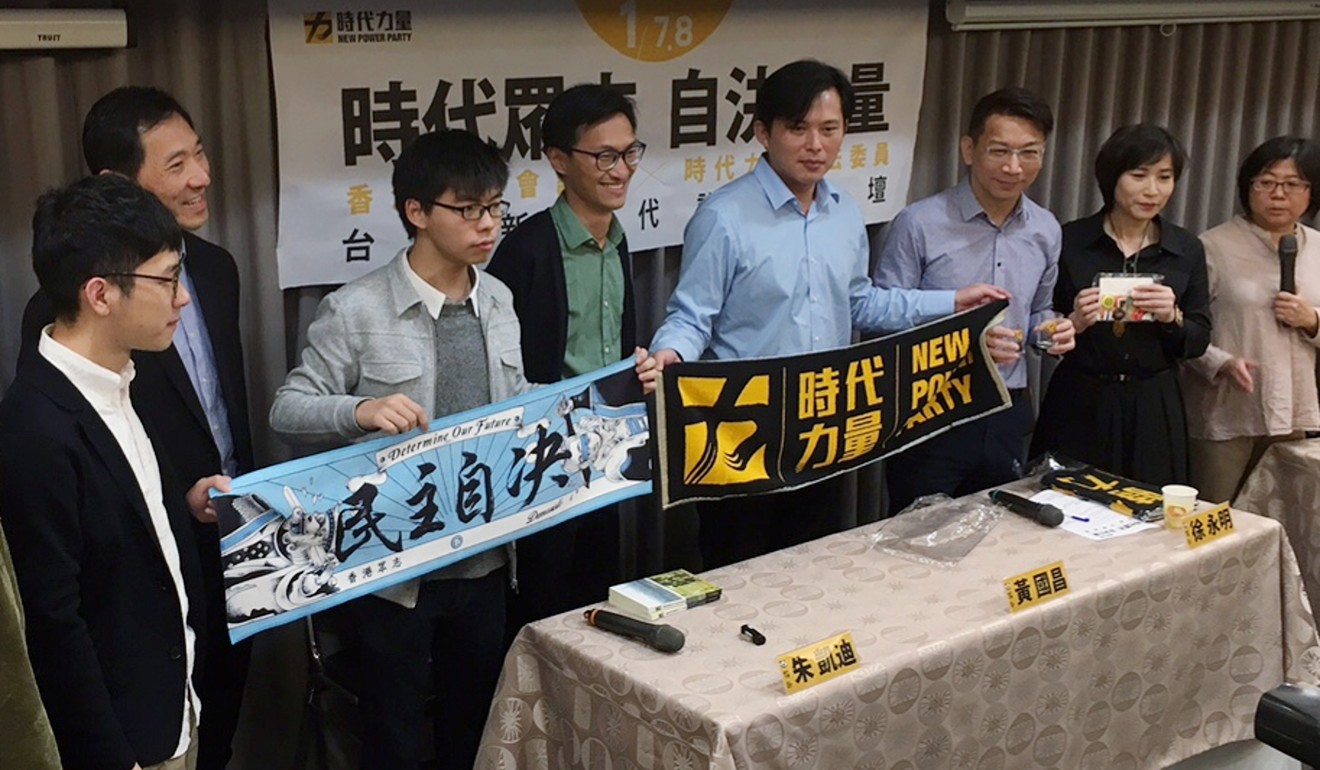
Beijing loyalist lawmakers condemn Hong Kong localists for Taiwan cross-party alliance
Pro-establishment bloc in statement accuses three fellow lawmakers of advocating city’s independence and inviting separatist meddling
The statement, signed by all but one of the Beijing-friendly lawmakers, came three days after three localist legislators – Raymond Chan Chi-chuen, Nathan Law Kwun-chung and Eddie Chu Hoi-dick – attended a press conference in Taiwan alongside 18 Taiwanese parliamentarians to announce the establishment of the Taiwan Congressional Hong Kong Caucus.
The new platform – comprised of members from the independence-leaning New Power Party and the ruling Democratic Progressive Party in Taiwan – would support the democratic fight in Hong Kong and facilitate exchanges between the legislators, they said.
The statement issued on Thursday accused the three lawmakers of advocating Hong Kong independence and inviting separatist forces in Taiwan to meddle in the city’s affairs.
“We strongly condemn [their move] ... which would jeopardise the principle of ‘one country, two systems’ and the country’s unity,” the statement read.

In 2008, the city’s biggest pro-Beijing party, the Democratic Alliance for the Betterment and Progress of Hong Kong (DAB), had also led a delegation to Taiwan and met the Democratic Progressive Party’ chairwoman Tsai Ing-wen, now the island’s president.
When asked why would the camp took such a strong stance against the trio this time, DAB lawmaker Elizabeth Quat said the nature of their visits was “different”.
Chan, of People Power, slammed the Beijing-friendly camp for making groundless claims against them.
“The platform would look into issues regarding Hong Kong’s democracy, freedom, human rights and the rule of law ... and entirely not anything like Hong Kong independence or collusion with Taiwan’s separatist force as suggested by the pro-establishment camp,” he said.
Chan also questioned whether his opponents meant that the city should stop all its exchanges with Taiwan as it was now under the rule of Democratic Progressive Party.
“Is the Legislative Council no longer allowed to interact with the Taiwanese government and its legislature? Are these exchanges regarded as collusions with Taiwanese separatist groups? I hope the pro-establishment camp would answer these questions.”
Student activist-turned-legislator Law, of Demosisto, also dismissed the allegations as “illusional” as he argued the Caucus was only a platform to facilitate legitimate parliamentary exchange.

